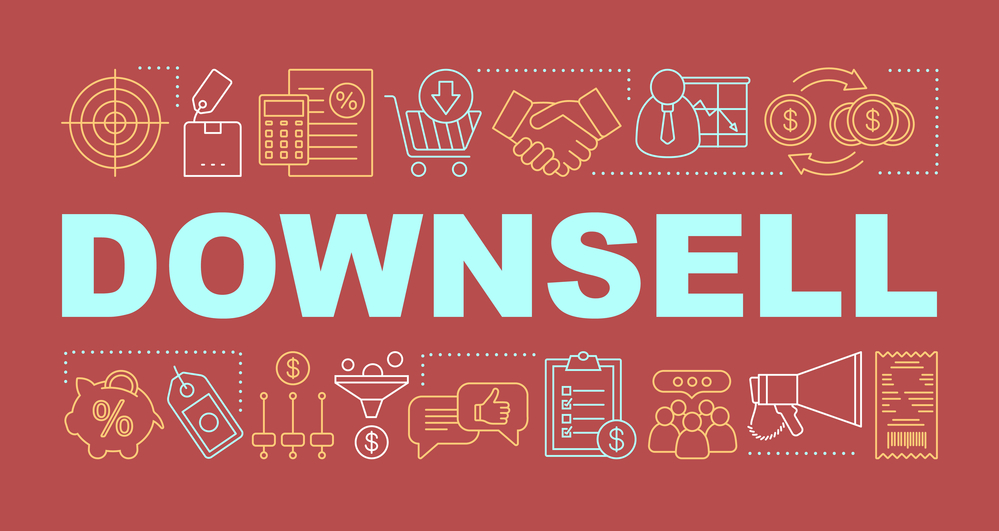
The TRUTH About Payment Gateways – Are You Using the Right One?
Jan 19, 2022 3 minute Read
There are many payment gateways, payment processors and merchant services for business owners to choose from. Not all are equal and it can be difficult to tell the difference between them. It can even be difficult to differentiate what separates a payment processor from a payment gateway from a merchant account. These terms are often tossed around interchangeably or incorrectly, which can promote misinformation that leads to less-than-stellar conversions or confusion about which piece you need to change.
We’ll uncover the truth about payment gateways, giving you all the information you need to make informed decisions and boost your conversion rates. Understand what each of these three pieces do (payment gateway, merchant account, payment processor) is more important than you might currently realize. To uncover the truth, you can read along below or listen to our podcast on the topic by clicking here.
What Is It and How Does a Payment Gateway Work?
A payment gateway is the software that connects your checkout page to your merchant account and allows you to accept credit cards on your site.
It’s as simple as that. But even though its such a simple element to your e-commerce store, it carries a lot of weight. Your payment gateway is also where customer information is passed through and stored. You need to make sure the payment gateway you’re working with is PCI-compliant and has high levels of security so you can minimize leaks of information and potential lawsuits.
These gateways work in the following way:
> The customer enters their credit card information on your checkout page.
> That data is captured by your payment gateway.
> Then, it’s transferred to your payment processor where they do what they need to accept the funds.
> The process is then reversed, where data goes back to the gateway and to your checkout page where it displays confirmation.
As you can see, the gateway is literally a gateway between your store and the processor.
Another fact you need to know is: you cannot create your own payment gateway, nor can you bypass it. It is an integral part of any checkout system.
What’s the Difference Between a Gateway, a Payment Processor, and a Merchant Account?
One of the most important reasons why you should understand the difference between a payment gateway, a payment processor, and a merchant account is in the case that you want to change one of them. A lot of people come to us with statements like, “I need a new payment gateway,” when in fact their business needs a new merchant account or processor, they just didn’t know the purpose or the difference.
Now, you might be thinking, “when should I change my payment gateway? Or payment processor? Or merchant account?” The answer is dependent on your needs as a business. Maybe you want to add a new product and your current merchant account doesn’t support it, or a new payment method but your current credit card processing company doesn’t support it, or switch up your CRM but your gateway isn’t supported.
It’s important to know the impact each of these have on your business currently and the business you want to have in the future.
Gateways vs. Processors
Payment gateways and payment processors are both used to collect and process payments, but they have some key differences. Payment processing companies act as a third party between your customers and your company. They handle payment processing from things like credit cards (MasterCard, Visa, American Express), debit cards, ACH, and other payment options, but you must still store cardholder data, fulfill orders, and manage cancellations. That’s where payment gateways come in.
A payment gateway acts like an extension of your website or e-commerce platform. All customer payment information, like card numbers, issuing bank info, and other card details, is stored with the gateway, you don’t need to manage anything yourself.
So the gateway stores, sends, and receives customer data while the processor takes care of depositing the payment.
Gateways vs. Merchant Accounts
While merchant service providers can set up a gateway for you, they don’t necessarily come with one or set you up with one. So that’s our first point: merchant accounts aren’t payment gateways and they don’t have to come with one, either.
The difference between the two is much more apparent than with a processor. A merchant account is a bank account that your merchant account provider opens with a financial institution for your business. Or you can open one directly with your bank. It allows you to accept credit card payments from customers. However, it doesn’t process those credit card transactions, it just allows you to accept it.
So, where the payment gateway is the link between your store and a payment processor, the merchant account is the link between your customer’s credit card and your merchant bank account. Neither of them actually processes funds, they just allow for the transfer of data to happen.
Merchant Accounts vs. Processors
Payment processors facilitate payments from your customers to you. Merchant accounts are the accounts you use to accept payments for goods and services.
You need a merchant account, a payment processor, and a payment gateway (as well as a CRM or shopping cart) to run an online store smoothly.
Why There’s Confusion Around Each of These Element
Some of the confusion around what a gateway does versus what a processor does and so on actually stems from companies that try to simplify it for business owners.
Let’s take Stripe as an example. They are a processor and a gateway and a “merchant account” (sort of) all wrapped in one, which simplifies the experience for any e-commerce store owner that wants to open up shop. However, they don’t make a point to separate what each aspect of their account does.
Stripe is also not a merchant account provider, they are a payment aggregator. Stripe has its own merchant account and leases out sub-merchant accounts to you. So, with Stripe or PayPal or any other aggregator, you don’t actually own a merchant account and therefore cannot switch to a better processor or a better gateway. You’re stuck with what they give you. And sometimes, that’s a good thing. A lot of low-risk, small business owners who are just starting out can benefit from the simplicity. The trouble comes when you want to start changing things up, like finding lower rates/transaction fees, allowing other currencies, or accepting payment methods that aren’t current available.
The solution is to get your own merchant account, which you would actually own and can make decisions about. Your own merchant account lets you better negotiate terms with acquiring banks and processors as well as link to a payment gateway of your choice.
And then some payment gateways have more functionality than others, which can also add to confusion. It’s important that you shop around between payment gateway service providers that fits your store best, meaning understanding what works and what doesn’t according to your needs.
Customizing Your Payments Setup
Having said that, your main focus should be on finding a merchant account provider that gets your good rates and service without causing too many bottlenecks. As we said earlier, a lot of people come to us saying they need a new gateway when they really need a new processor or merchant account.
You can get your own merchant account that is not tied to a specific gateway. So, for example, you can get a merchant account through DirectPayNet but use a payment gateway from Authorize.net or NMI or somewhere else.
Even with your own merchant account, a lot of merchant service providers just tell you which gateway to use and it’s usually one of the more well-known ones. That’s not a problem since you know that merchant account is compatible with that gateway, however it might not be the right gateway for you.
Let’s say you work with Sticky or Connective or WooCommerce—one of the big CRMs. You have to check which gateways that CRM can be integrated with. And even though you can use other gateways with a CRM, it won’t be as seamless and might require some backend work or a ton of plugins/APIs to work the way you want.
This is when you need to decide which is the most important player in your business.
The Most Important Element for Your Business May Not Be the Payment Gateway
Before making any changes to your online payments setup, this is step one: deciding which element carries the most weight.
Is It Your CRM?
If it’s your CRM, shopping cart, or software you’re using to manage your site and customer payment data, then you need to get the list of compatible payment gateway providers from your provider/developer. That’s the only way to know with 100% certainly which gateways can be used seamlessly. After that, you can find a compatible payment processor that works with that gateway.
Is It Your Merchant Account?
For a lot of online business owners, the merchant account should be the top priority. This is especially true for high-risk businesses–those that use subscription pricing or sell CBD or something else that’s considered high-risk. Being high-risk makes can make it difficult to get a merchant account, so you value you the one you have. If this is the case, find out which PCI compliance-friendly gateways are supported by the payment processor you have linked to your merchant account and which software/CRM supports that gateway, in this order.




